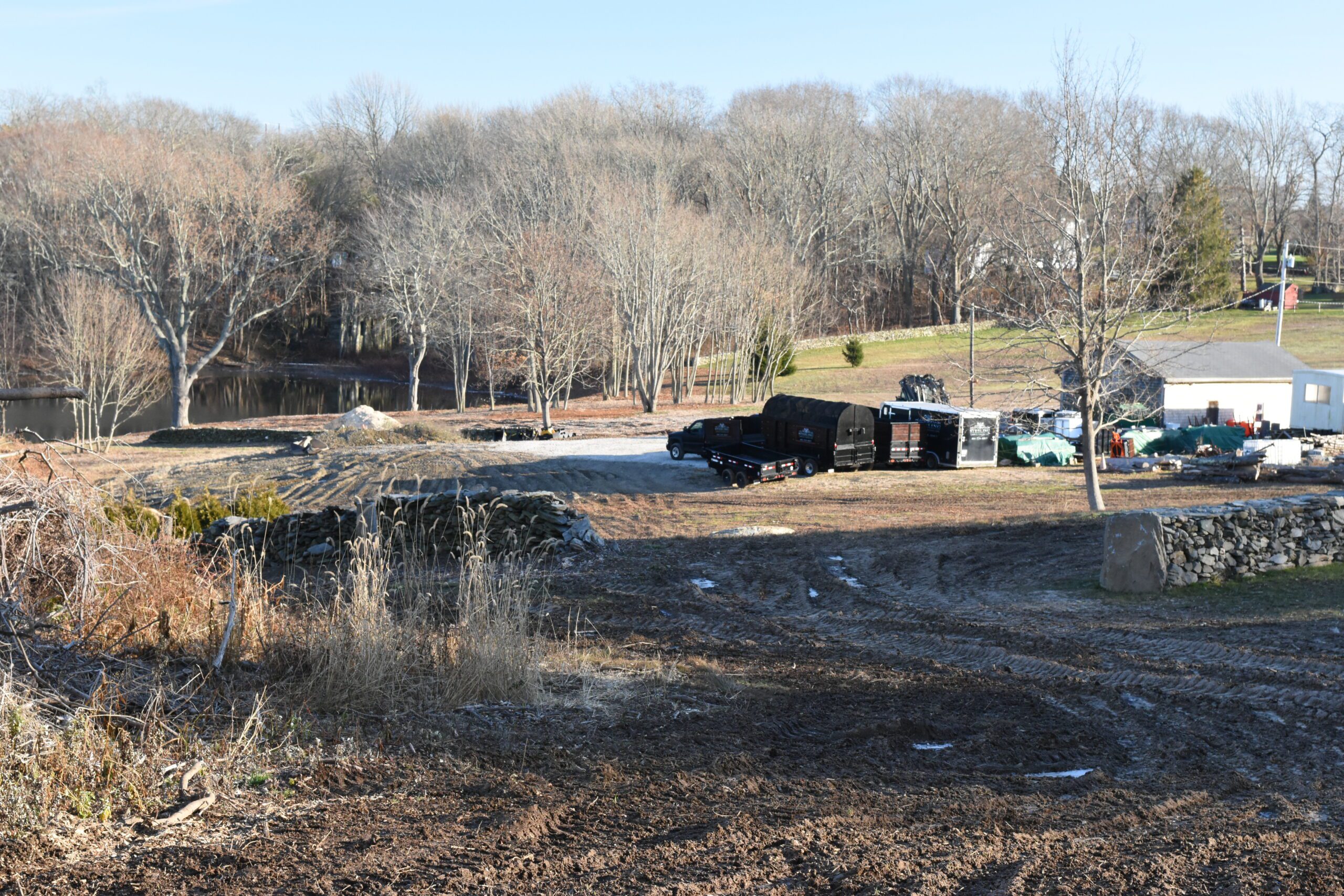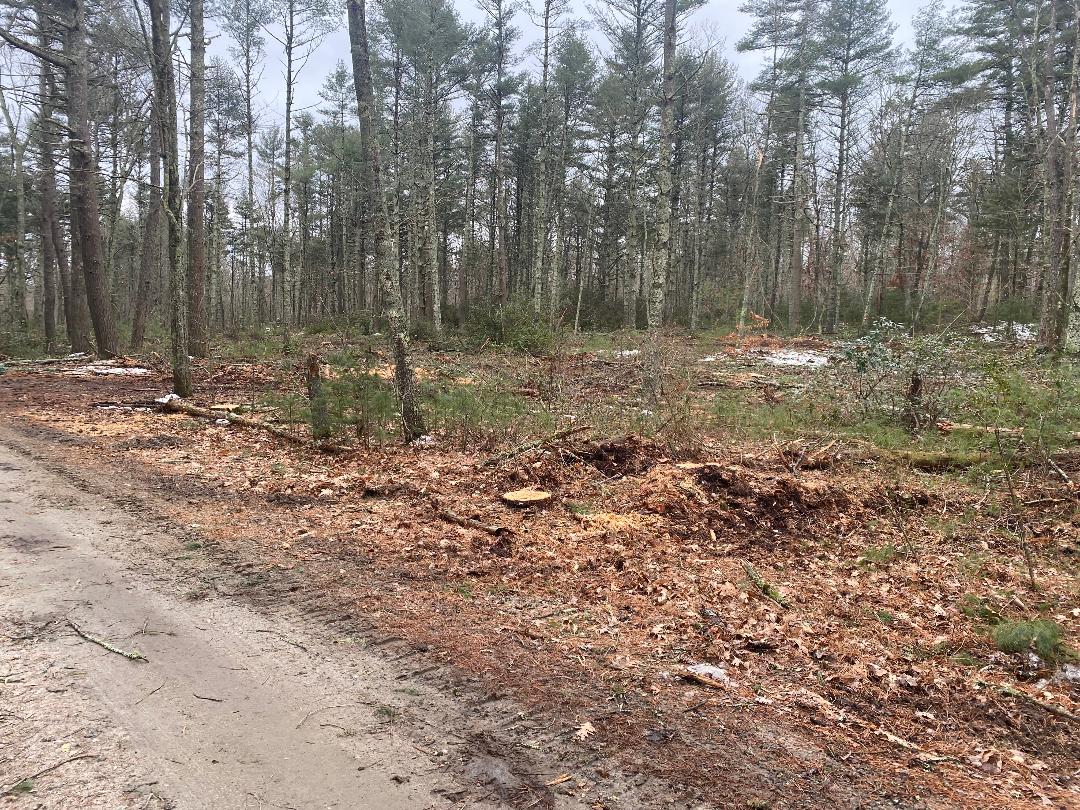Brayton Point Scrap-Metal Operation Upsets Neighbors
November 25, 2019
SOMERSET, Mass. — The Brayton Point coal power plant may be gone but a new neighborhood nuisance has taken its place.
Since mid-July, an expanded scrap-metal business has been operating on the docks where coal used to be unloaded. A road-salt storage facility has also emerged on the 307-acre peninsula on Mount Hope Bay.
The operations, run by Eastern Metals Recycling (EMR) and Allied Salt LLC, appear to be scaling up as the work continues to dismantle what was once the largest and dirtiest power plant in New England. Both businesses are tenants of St. Louis-based Commercial Development Company (CDC) Inc.
Five permits were issued to CDC by the town in June and September of last year for the demolition of the Brayton Point Power Station and its two cooling towers. In addition to shipping the scrap metal by boat and truck, the waterfront site began taking in scrap metal from nearby recycling operations. The metals are being sorted onsite and loaded on to cargo ships.
Instead of coal dust, residents in the nearby Brayton Point neighborhood are reporting a rust-colored powdery substance on their homes and cars. Noise from dump trucks, the loading of cargo ships, and other operations are being be heard in living rooms at all hours, according to concerned residents.
Neighbors are frustrated that town officials gave verbal approvals for the expanded work but never ordered a formal permit review. Local zoning laws allow scrap metal and salt storage in designated industrial areas such as the Brayton Point terminal but dust and fumes must be contained onsite, along with other environmental controls.
The town building inspector issued cease-and-desist orders Oct. 9 to halt delivery of scrap metal and salt until proper permits had been issued by the town. Town administrator Richard Brown also asked that CDC request a review by the Massachusetts Department of Environmental Protection (DEP).
CDC hasn’t sought that request, according to DEP. CDC attorney Christopher Markey disputes that the town formally asked for the review, challenging a report in The Herald News.
“The one thing I know is don’t believe everything you read in the newspaper,” Markey said.
Markey noted that CDC has discussed the operations with numerous DEP staffers and Environmental Protection Agency officials and is in compliance with all regulations.
CDC’s full redevelopment plan for the proposed Brayton Point Commerce Center, which includes a hub for offshore wind development, has yet to be submitted to the town or other reviewing entities.
Meanwhile, demolition, sorting, and the loading of cargo vessels continues even as opposition has mobilized against the operation.
An online petition has nearly 1,000 signatures. A Facebook page has surged in popularity. Residents first sounded off during a Conservation Commission meeting in October, and have continued to express concern at other town meetings.
For now, the Zoning Board of Appeals will decide if the CDC subsidiary, Brayton Point LLC, can continue the operations. The application seeks storage of scrap metal on the 2 acres that previously served as the coal pile for the power plant. Approval is also being sought to continue use of a 1-acre plot for salt storage.
At a Nov. 21 Zoning Board of Appeals meeting and a Nov. 19 Planning Board meeting, residents again expressed concerns about the work being conducted on the property.
“We listen to this all night,” said Kathy Souza, a resident of the Brayton Point neighborhood, at the Planning Board meeting, as she played a video from her phone showing scrap metal being dropped from an excessively high level by crane onto a cargo ship.
Other residents noted the high volume of trucks driving through their neighborhood. Others played audio recordings of the scrap operations they could hear from inside their homes.
The companies “have played dirty from the start,” said neighborhood resident Caitlyn O’Brien Kosinski. “What guarantee do we have that they are going to do it right now?”
At the Nov. 19 Planning Board meeting, the board voted unanimously to issue an unfavorable ruling on the application. The decision isn’t binding but serves as a recommendation for the zoning board in its ruling on applications.
Two days later, that decision was postponed by the Zoning Board of Appeals until Dec. 3, or perhaps later at a meeting scheduled for Jan. 9.
At the Planning Board meeting, member Tim Turner vowed to never vote in favor of a metal-shredding operation at Brayton Point. He offered a list of items for the zoning board to address, such as how violations will be assessed to truck drivers who travel on prohibited roads and the enforcement and oversight for other costs such as environmental reviews and impact studies. Turner asked for information on dust control, fumes, and stormwater runoff. At the behest of residents, he asked that the word recycle be removed from the permit so that only scrap storage be allowed onsite, thus prohibiting car crushing and metal shredding.
Markey, a Democratic state representative from Dartmouth, Mass., promised that there will be no shredding or recycling operations without town approval.
“There is no recycling operation,” he said. “It is simply the storage of already processed, recycled, sorted material.”
CDC intends to run a wholesale operation for material that has been “processed in another location,” Markey added. “And if it ever would become a recycling operation, we would be back before you and before all of these people to try to convince them that it would not emit any noise. It wound be as quiet as can be.”
Brayton Point resident Patrick McDonald presented large, overhead photographs showing the scant protections in place to prevent scrap metal and other waste from spilling into the water. He played a video from his phone showing the scrap operations emitting “waves and waves or dust going across the bay.”
McDonald also played audio of the noise. He and other residents challenged the traffic and noise estimates offered by CDC. They encouraged an engineer hired by the town to make more in-depth reviews of the traffic and noise data.
“Are you guys sick of hearing this?” McDonald asked. “Well, I certainly am.”



